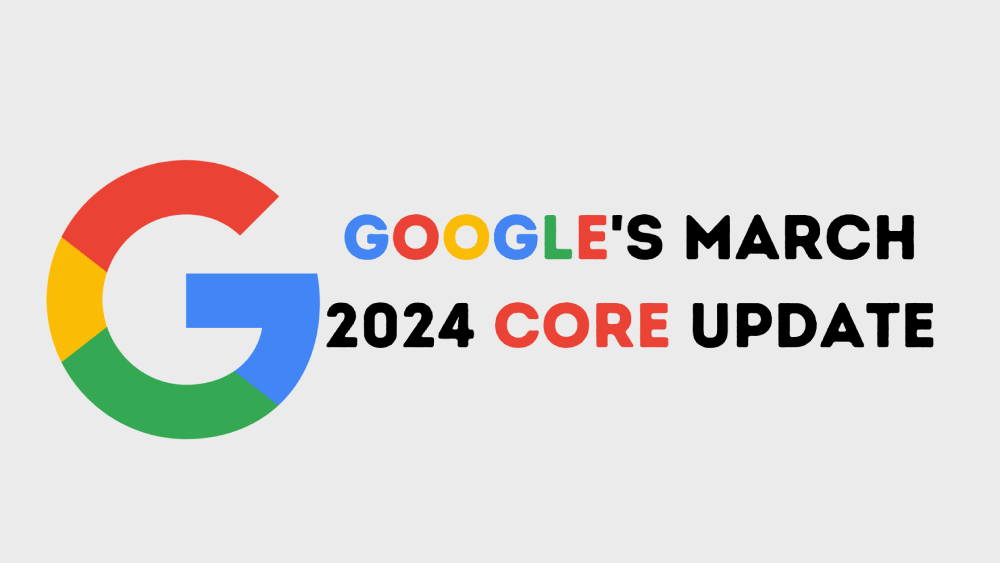
Just this month, i.e. March 2024, came yet another Google’s latest core algorithm update, codenamed “Helpful Content”. For sure, it has sent ripples through the SEO and writing community, emphasizing user experience and prioritizing high-quality content like never before.
Know the Focus: Reducing “Unhelpful” Content
Google’s primary objective with this update was to significantly diminish the presence of “unhelpful content” in search results. This encompasses a broad spectrum of low-quality content, including:
- Thin content: Content lacking depth, substance, or unique value proposition.
- Automatically generated (AI) content: Content produced by AI without human intervention and editorial oversight.
- Clickbait content: Content designed primarily to attract clicks with sensational headlines and misleading information.
- Content scraping: Reusing content from other sources without adding originality or value.
Google’s search algorithms have been refined to better identify and downplay such content in search rankings. This aims to elevate the user experience by surfacing well-researched, informative, and trustworthy content that genuinely addresses user search queries.
Beyond Word Count: Evaluating Content’s Depth and Breadth
While thin content primarily refers to short pieces lacking substance, the update goes beyond mere word count. Google’s algorithms now assess content quality through factors like:
- Topical Relevance: Does the content directly address the user’s search query and provide relevant information?
- Comprehensiveness: Does the content explore the topic thoroughly, covering various aspects and offering valuable insights?
- Unique Value Proposition: Does the content bring something new to the table? Does it offer fresh perspectives or analysis not readily found elsewhere?
Focusing on these aspects ensures content caters to user intent and surpasses simply summarizing information available on other websites.
Combat Malicious Tactics: Identify and Avoid Spammy Content Creation
The update tackles manipulative practices like keyword stuffing, where creators unnaturally insert keywords to gain search ranking. Google’s algorithms are now adept at identifying such attempts and penalizing websites that prioritize keyword density over user experience.
Additionally, the update targets:
- Automatically generated content: AI-generated content often lacks the depth and authenticity expected by users.
- Content farms: Websites churning out low-quality content solely to attract clicks will see a significant decline in ranking.
- Link-building schemes: Unnatural link-building practices aimed at manipulating search rankings will be further devalued.
- Content Creators: Embracing User-Centricity
Understanding how users search and consume information is vital. Here’s how content creators can adapt:
User Experience Optimization
- Prioritize clear and concise writing, with proper formatting and use of visuals to enhance readability.
- Ensure website navigation is user-friendly and mobile-responsive.
- Leverage internal linking to connect relevant content on your website, improving user flow.
Building Topical Expertise
- Demonstrate knowledge and authority in your niche by citing credible sources, including relevant research papers and industry publications.
- Showcase your expertise through author bios highlighting relevant qualifications and experience.
Addressing User Pain Points and Fostering Engagement
Creating content that resonates with users requires understanding their specific needs and challenges.
- Conduct thorough audience research: Identify your target audience’s demographics, interests, and search patterns.
- Address user pain points: Focus on creating content that solves users’ problems or offers solutions to their challenges.
Encourage interaction
- Respond to comments and address user queries in a timely manner.
- Consider incorporating interactive elements like polls, quizzes, or surveys to boost engagement.
The Ever-changing World of SEO: Staying Ahead of the Curve
Search engine algorithms are constantly refined, making it crucial to stay updated on the latest SEO trends and best practices.
- Monitoring Search Console: Regularly review Google Search Console data to identify potential issues with website performance, crawl errors, and mobile usability.
- Keeping Up-to-Date with Google Updates: Following Google’s official Search Central blog and developer resources ensures you stay informed about the latest algorithm changes and webmaster guidelines.
Impact on Websites and Content Creators
The “Helpful Content” update presents both challenges and opportunities for website owners and content creators. Here’s a closer look:
- Challenges: Websites heavily reliant on thin, low-quality content or manipulative tactics like keyword stuffing are likely to experience significant ranking drops.
- Opportunities: Content creators who prioritize user intent, deliver in-depth information, and foster audience engagement stand to gain visibility and organic traffic.
Strategies for Adapting to the New Landscape
Primary focus is on user-centric search, several strategies can help websites and content creators thrive:
- Content Quality is King: Focus on creating high-quality content that offers unique value, addresses user needs comprehensively, and adheres to Google’s Search Quality Guidelines.
- Expertise, Authoritativeness, and Trustworthiness (E-A-T): Establish yourself as a credible source in your niche. Showcase expertise through author bios, relevant qualifications, and citations from reputable sources.
- User Engagement: Foster user interaction through comments sections, forums, and creating content that sparks conversation and addresses user pain points.
- Technical SEO: While content quality remains paramount, maintaining a technically sound website with good page speed and mobile-friendliness is crucial.
Moving Forward: A User-Centric Search Experience
Google’s “Helpful Content” update signifies a significant step towards a search landscape that prioritizes user needs. By creating valuable, informative content and building trust with the audience, website owners and content creators can ensure their content thrives in the face of evolving search algorithms.
Additional Considerations
- Staying updated with the latest SEO trends and Google algorithm updates is crucial for long-term success.
- Continuously monitoring website analytics and user engagement metrics can help identify areas for improvement.
- Utilizing webmaster tools like Google Search Console can provide valuable insights into website performance and potential search ranking issues.
A Collaborative Effort for a Better Search Experience
Prioritize user needs and create high-quality, informative content to ensure websites are discovered and organic traffic grows in the longer run.
SOURCE:

